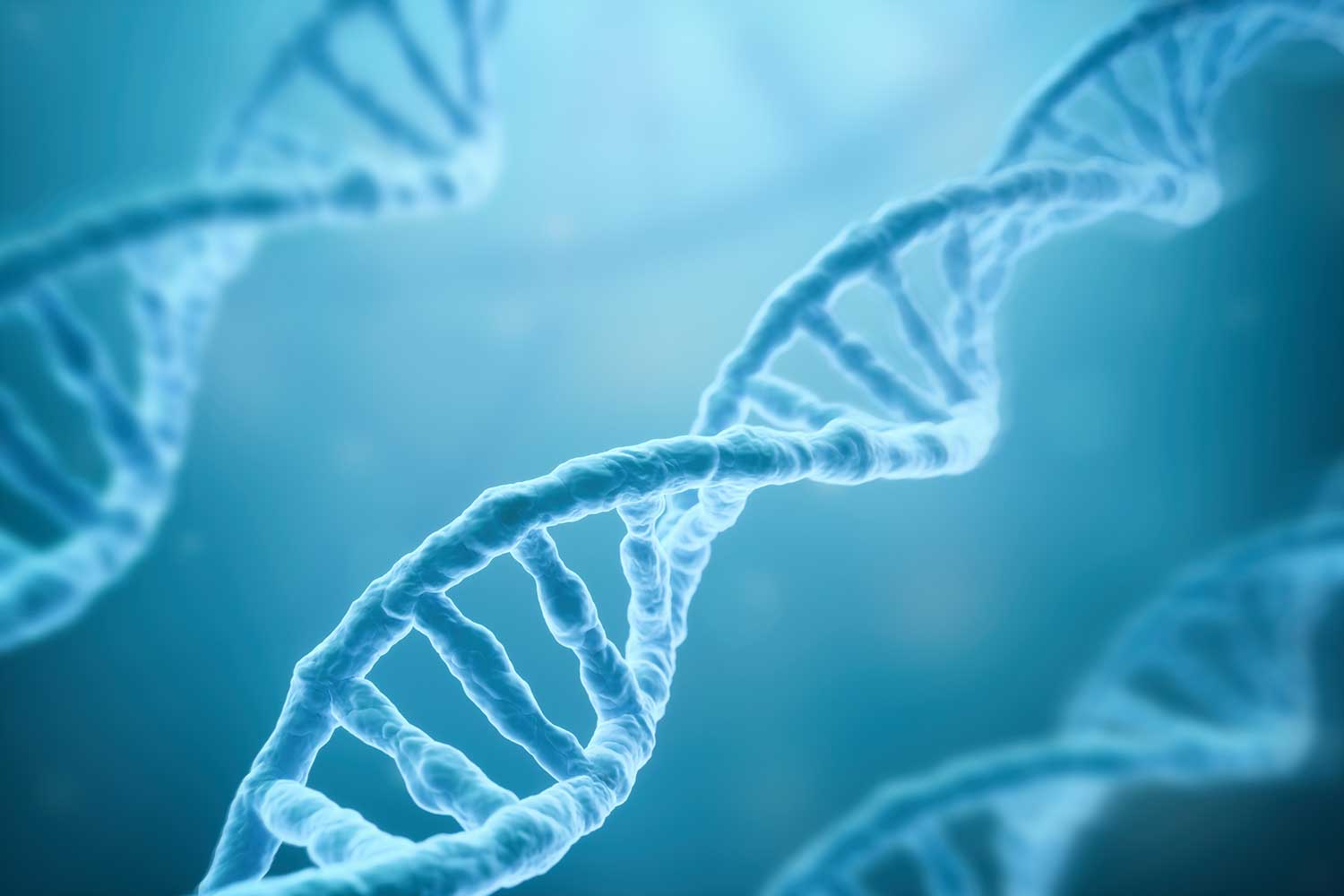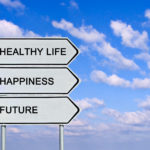One thing I hear from my clients regularly is that heart disease or diabetes runs in their families and they’re seeing me to prevent one or the other or both. I have two answers to this. One, that diet and lifestyle also “run in their family” and two, that both are preventable.
Our genetic blueprint is like a guidebook, not hard and fast rules.
You may not know a lot about genetics, so let’s start with some basics. You inherit your genetic blueprint half from your mother and half from your father. This genetic blueprint is written on chromosomes (23 from mom and 23 from dad, for a total of 46) and this information is contained in every cell of your body.
As humans, we are 99% the same, the 1% that makes us different is what dictates whether we have blue eyes or green eyes, blonde hair or brown hair, the color of our skin, our height, etc… It also influences what illnesses we may or may not be predisposed to.
The 46 chromosomes we each have contain genetic information you can think of as a book of life (genome), with words (genes), and letters (SNPs). The Human Genome Project started in the 1990’s mapped our 23,500 genes, along with 3.2 billion letters (nucleotides). As our book of life continues, the words get transcribed (rewritten). This way we continue to have blue eyes all our lives as opposed to blue one year and green the next. Sometimes, there are problems with the transcription process. A letter is missed or a different letter inserted. Most of the time these tiny mistakes mean nothing at all and the incorrect word is discarded. However, sometimes, the mistake spells a different word and it changes the function of that gene or how well it works.
Let’s look at the word THERE as an example. THERE could be code for a gene which may have a certain function in your body. If it is misspelled as THEGE, your body may say, this word doesn’t have a function and it will be thrown away. But if THERE is misspelled as THESE, that is a recognizable word and may have effects on the function of how well it is supposed to work. This “misspelling” trading an “R” for a “G” or an “S”, is called a single nucleotide polymorphism (SNP). SNPs can be duplications, insertions, deletions, inversions, or rearrangements. These SNPs can cause genes to turn on or turn off, and that can change the expression of the gene, which can have no effect, minimal effect, or drastic effects on your health. If we look at a real gene like BRCA1, for example, we understand that having the gene predisposes a woman to reproductive cancers, however, while it is turned off, it causes no harm. It is when the gene is turned on that the problems arise. This is why I say your genetics are not your destiny.
Genetics is the study of the genes (the words) and their functions. Genomics, a word that is used interchangeably with genetics, is the study of the collection of all the genes and how they interact with one another. Genomics has led to an “omics” revolution in studying how gene expression affects metabolism, weight, heart health, diabetes, cancer, use of medications, and the list goes on and on… But also, how your environment, diet, and lifestyle affect your genes.
Your exposome, everything you are exposed to non-genetically from birth to death, contributes to 85% of your disease risk.
So even though your genetic blueprint tells you what possible risks you are predisposed to, you have a lot of control over how things turn out. You have control over your diet, your stress levels, the quality of the air you breathe at home and at work (a good air filter helps), the quality of the water you drink, how much and the quality of sleep you get each night, and how much physical activity you get. All of these things directly effect your genes.
Genomics is such a new field that there is still much misinformation about genes, gene variants, and what that means for a person’s overall health and wellbeing. The challenges of genomics are many including lack of knowledge (we are far from knowing everything we need to about how our genes work), lack of validity, evidence, and standards (which differ from lab to lab and various institutions), lack of adoption and implementation, cost and coverage, and people not wanting to share results due to fear of being labeled as a pre-existing condition.
Your genes are not your destiny.
In addition, results need to be taken with “a grain of salt”. Results need to be actionable. It would be hard to find out unfavorable news and not be able to affect any change. And then there is the question of how aggressive the treatment or action should be. Low-risk interventions like change in diet and lifestyle are easier to recommend than high-risk, permanent interventions such as surgery. That is why it is important to talk to a trained professional who understands these issues.
Stayed tuned for part 2 where I discuss the interaction between diet and genes.









